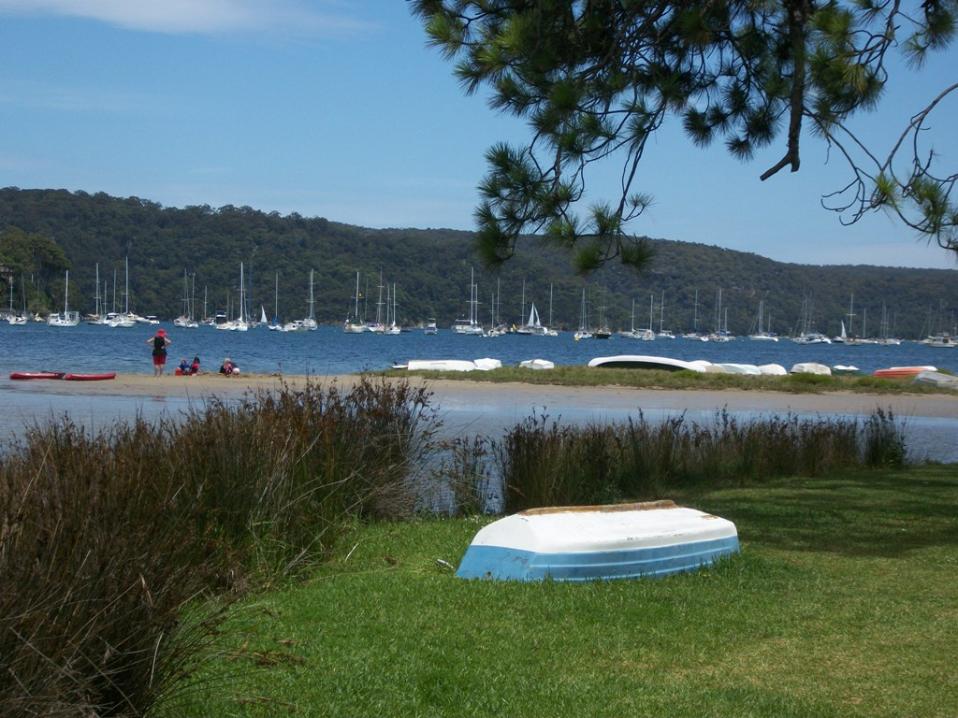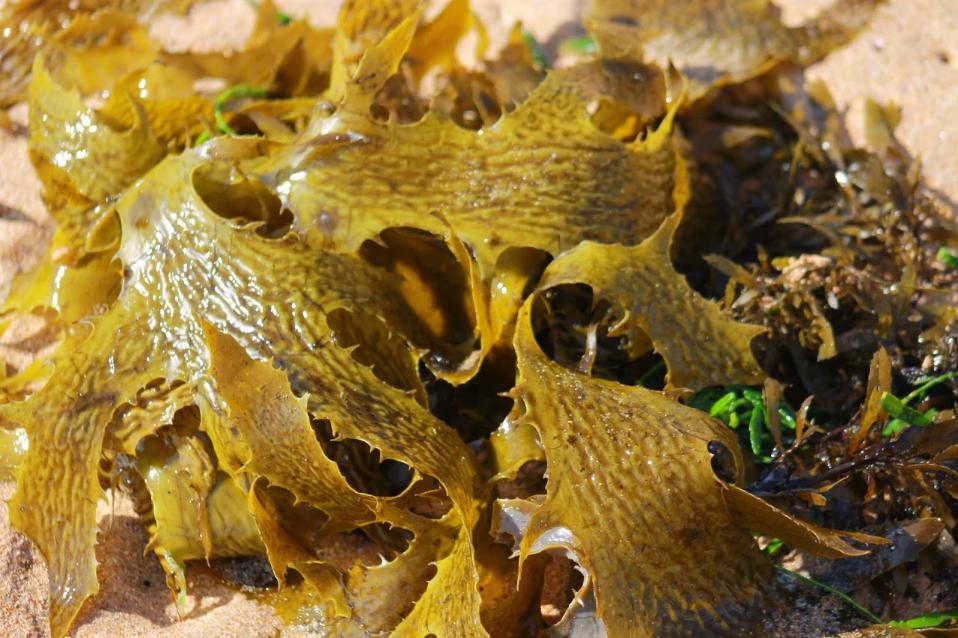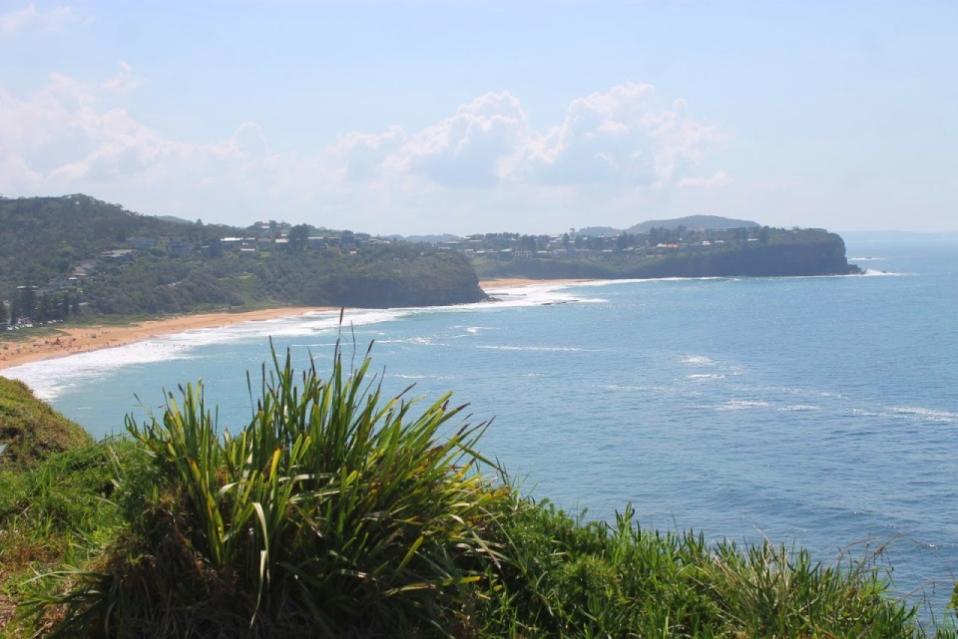June 3 - 9, 2018: Issue 362
World Environment Day And World Oceans Day 2018 - June 5th & 8th
For An Aquatic Community Beating Plastic Pollution Is Essential: If You Can't Reuse It - Refuse It!

World Environment Day and World Oceans Day both fall this week, on June 5th and June 8th respectively. This year both are focused on beating plastic pollution and turning a tide which we see everyday bringing thousands of pieces of discarded plastic from bottle caps to plastic bags washing onto the shorelines of our beaches and the Pittwater estuary. There's even plastic we can't see washing ashore.
The theme for World Environment Day 2018 is 'Beat Plastic Pollution - If you can't reuse it, refuse it' and for World Oceans Day the focus is on 'Clean our Ocean!' with 'Preventing plastic pollution and encouraging solutions for a healthy ocean' being the way to bring this about.
The action focus for World Oceans Day 2018 is to prevent plastic pollution and encourage solutions for a healthy ocean. All over the world, people will be taking action through cleanup events, awareness campaigns and more. You can join them and become a part of the solution by making a commitment on social media to stop using single use plastic bags, bottles and straws in honor of World Oceans Day.
In our area the charge on refusing plastic bags has been led by Avalon Boomerang Bags, while changing what we do and how we do it is provided through Beach Cleans led by The Green Team, Living Ocean and many community based clean-up crews. Initiatives such as that recently launched by the Surfrider Foundation Australia's, their Ocean Friendly Businesses campaign - details below - are yet more ways we can all get involved in reducing plastic waste going out into the environment from today.
Some tips to reduce your plastic consumption
- Carry a reusable water bottle/coffee cup.
- Drink tap water and refuse to use water bottled in plastic.
- Carry a canvas bag for shopping.
- Use paper folders.
- No plastic cutlery or straws.
- Stop chewing gum (it contains plastic)
- Pick up litter especially near or on beaches, waterways and shorelines.
- Don't use balloons for celebrations - those filled with gas frequently blow away and end up killing marine life.
- Wear clothing made from natural (not synthetic) materials.
- Avoid buying items packaged in plastic.
- Skip the disposable razor.
- Don't buy cosmetic products or washes with microbeads in them.
Or just follow this WED and WOD rule: If you can’t reuse it, refuse it. This week if we all pick up any plastic we see, just one peice each, we will have reduced the amount in our environment by thousands.
Key Facts:
This year alone, global manufacturers will produce an estimated 360 million tonnes.
In the next 10-15 years global plastic production is projected to nearly double.
Production is scheduled to reach 500 million tonnes by 2025 and a staggering 619 million tonnes by 2030.
Avoiding the worst of these outcomes requires a complete rethinking of the way we produce, use and manage plastic.
The most common single-use plastics found in the environment are in order of magnitude, cigarette butts, plastic beverage bottles, plastic bottle caps, food wrappers, plastic grocery bags, plastic lids, straws and stirrers, glass beverage bottles, other plastic bags, and foam take-away containers. .
The Asia-Pacific Economic Cooperation (APEC) estimated at 1.3 billion USD the economic impact of marine plastics to the tourism, fishing and shipping industries in that region alone.
In Europe alone, the estimated costs for cleaning shores and beaches reaches €630 million per year (European Commission, 2015), and studies suggest that the annual economic damage of plastic to the world marine ecosystem is at least 13 billion USD (UNEP, 2014)
Of the 24 African countries having introduced national bans on plastic bags, more than half (58%) have been implemented between 2014-2017
Key Figures:
5 billion plastic bags are used each year
13 million tonnes of plastic leak into the ocean each year
17 million barrels of oil used on plastic production each year
1 million plastic bottles bought every minute
100,000 marine animals killed by plastics each year
100 years for plastic to degrade in the environment
90% of bottled water found to contain plastic particles
83% of tap water found to contain plastic particles
50% of consumer plastics are single use
10% of all human-generated waste is plastic
2018 World Oceans Day Theme: “Clean Our Ocean!”
The United Nations celebrates World Oceans Day every year on June 8. As part of the celebrations, the Office of Legal Affairs, Division for Ocean Affairs and the Law of the Sea organizes several events and hosts a reception at United Nations Headquarters in New York City, where the Secretary-General’s Annual World Oceans Day Message is delivered and the winners of the Annual World Oceans Day Oceanic Photo Competition are announced. Each year on the evening of World Oceans Day, the the Empire State Building is lit in blue to honour the world’s oceans.
This year a Discussion Panel, entitled “Clean our ocean: innovation and youth” will be held from 3:25 to 5:30pm at United Nations Headquarters. This interactive event aims to bring forward examples of visions, innovative approaches or partnerships which support a clean ocean for sustainable development. Particular focus will be given to innovation across the spectrum of relevant stakeholders represented by six panellists. The event will also provide opportunity for youth mobilization, including their direct participation in the event.
WHAT IS WORLD OCEANS DAY ?
On World Oceans Day people across the globe celebrate the significance and impact of the oceans around the planet, by highlighting their many contributions to human society, while recognizing the considerable challenges we face in maintaining the benefits that the oceans provide. The oceans cover about two-thirds of the surface of the Earth and are the very foundations of life. They generate most of the oxygen we breathe, absorb a large share of carbon dioxide emissions, provide food and nutrients, regulate climate, and are important economically for countries that rely on tourism, fishing and other marine resources for income, and serve as the backbone of international trade. Unfortunately, human pressures, including overexploitation, illegal, unreported and unregulated fishing, destructive fishing, as well as unsustainable aquaculture practices, marine pollution, habitat destruction, alien species, climate change and ocean acidification are taking a significant toll on the world’s oceans and seas. Peace and security are also critical to the full enjoyment of the benefits that can be derived from the oceans and for their sustainable development. As has been remarked by the Secretary-General, “There will be no development without security and no security without development”.
Many countries have celebrated World Oceans Day following the United Nations Conference on Environment and Development, which was held in Rio de Janeiro in 1992. In 2008, the United Nations General Assembly decided that, as of 2009, 8 June would be designated by the United Nations as “World Oceans Day” (resolution 63/111, paragraph 171). The official designation of World Oceans Day by the United Nations is an opportunity to raise global awareness of the benefits derived from the oceans and the current challenges faced by the international community in connection with the oceans. The day is intended to provide an opportunity for people to reflect and emphasize the benefits that the oceans can provide and our individual and collective duty to interact with oceans in a sustainable manner so as to meet current needs without compromising those of future generations.

Become An Ocean Friendly Business
Background
The Surfrider Foundation Australia is a registered not for profit organisation dedicated to the protection of Australia’s waves and beaches through Conservation, Activism, Research and Education (C.A.R.E). We have been active in Australia since 1991.
Our mission is to inspire coastal communities to be passionate about protecting the ocean for future generations and to engage individuals in actions that persuade decision makers to take action on protecting what we love - our oceans!
Rise Above Plastics
Along the Australian coastline, the Surfrider Foundation has been engaging communities with our Rise Above Plastics campaign which aims to reduce the impacts of plastics in the marine environment by raising awareness about the dangers of plastic pollution and by advocating for a reduction of single-use plastics and the recycling of all plastics.
We have seen first hand the devastating effects single-use plastic is having on our environment and marine wildlife, and are dedicated to coming up with solutions to stop plastic pollution destroying our oceans before it is too late.
Ocean Friendly Program
The Surfrider Foundation Australia’s ‘Ocean Friendly’ Program, is an Australian adaption of the Surfrider Foundation US ‘Ocean Friendly Restaurants’ program which aims to reduce single-use plastic at it’s source, in favour of reusable items and non-plastic alternatives, as well as ensuring food and other consumables are ethically sourced. The program further aims to reduce the environmental impact of participating venues by encouraging efficient water and energy usage.
Surfrider Foundation Australia in association with the Boomerang Alliance aims to promote establishments along the Australian Coastline who are taking action on plastic pollution by implementing measures to reduce single-use plastic items at their source.
Managers who implement the six mandatory measures will be promoted on the Surfrider Foundation Australia website, social media, emails and community platforms as well as promoting their ‘Ocean Friendly’ status through optional promotional material (window
stickers, brochures, posters - available at www.surfriderfoundation.org.au .
We hope this initiative inspires individuals, businesses, management, local government, state and federal decision makers that every little action counts and that our oceans and our environment are worth protecting.
Establishments wishing to become ‘Ocean Friendly’ must implement the six following mandatory criteria:
1. No expanded polystyrene foam use (aka Styrofoam).
Establishments must not use any polystyrene food packaging. Surfrider recommends embracing reusable items whenever possible and using paper and cardboard packaging for takeaway options. Where paper and cardboard packaging cannot be used Surfrider encourages establishments to REDUCE single-use packaging, avoiding bioplastic items where possible.
2. Only reusable tableware is used for on site dining and non-plastic utensils for takeaway food.
Establishments must not use single-use plastic tableware; including plates, bowls, cups, glasses, and utensils. Non-plastic cutlery (eg. wood, bamboo) must be used for takeaway dining.
3. No plastic bags offered for takeout orders.
Establishments must not offer single use plastic bags. For takeaway options establishments can offer paper bags or a reusable bag system.
4. No single-use plastic straws.
Establishments must not offer single-use plastic straws. Establishments can use reusable straws or paper straws. Surfrider recommends only providing a straw upon request for all beverage items in order to reduce overall use. Note items may require straws in which case providing only upon request will not be feasible.
5. No water sold in plastic bottles.
Establishments must not offer water in single-use plastic bottles. Beverage litter is the highest volume litter item in Australia and specific action needs to be taken to reduce it’s impact on the environment. Surfrider recommends establishments offer house water to customers and refill stations to encourage customers to bring reusable bottles.
6. Proper recycling practices are followed.
Establishments must provide a recycling disposal option that is easily visible for customers to recycle all beverage containers and recyclable material. Establishments must ensure that cardboard and any other delivery packaging are recycled at the back of house. Check with your local council to see which items can be recycled (Surfrider recommends placing signage and information for staff to follow).
We also encourage the following:
7. Discount offered for customers with reusable cup, mug, bag, etc.
Establishments must offer a discount (minimum 30c) for customers who bring reusable items. Establishments are only required to offer a discount for one item which is clearly advertised to customers. Surfrider however, encourages establishments to offer multiple discounts to incentivise customers to bring reusable items that replace single-use disposable items; including offering a small discount for reusable coffee mugs, drink cups, reusable bags and reusable food containers.
8. Vegetarian/vegan an sustainable seafood options
Vegetarian/Vegan options are offered on a regular basis and produce is sustainably sourced. If seafood is on the menu, they are to be responsible seafood choices that meet the requirements of Australia's Sustainable Seafood Guide.
9. Water Conservation efforts such as low flow faucets and toilets
A) Installing low flow faucets and toilets, which can help to conserve a significant amount of water.
B) Company policy prioritises a reduction in water usage for all cleaning operations: Eg the use of a broom, rather than a hose, to clear sidewalks, driveways, loading docks and parking lots. If more intense cleaning is needed, policy that specifies spot cleaning with a bucket and brush instead of power washing and capturing the water. Note, many municipalities prohibit restaurants from using any cleaning process for outside areas that generates urban runoff. Check with local council for regulations.
C) Conserving water and reducing sewage spills as part of proper handling of fats, oils, and greases (FOG). When poured down the drain, FOG hardens inside sewer pipes, constricting wastewater flow and clogging the pipes. This can lead to sewer overflows that can potentially reach the ocean. Additionally, it can take extra water to attempt to ‘flush’ FOG down the drain. Establishments must have policy that addresses these issues. Surfrider recommends following local requirements for a grease trap and FOG management.
10. Energy efficiency efforts such as LED lighting and Energy Star appliances.
Establishments must provide evidence that low environmental impact lighting products and systems are in use. For more information on energy efficient systems visit www.lightingcouncil.com.au
Establishments who receive ‘Ocean Friendly’ status, must report to Surfrider Foundation Australia every 6 months to prove ongoing adherence to the above criteria. Contact operations@surfrider.org.au
Congratulations To These Wonderful Accredited Ocean Friendly Businesses...
1. Earth Walker & Co, Coledale
2. UOW Unibar
3. 4 Pines Brew Pub, Manly
4. 4 Pines Truck Bar, Brookvale
5. 4 Pines Public House, Newport
6. Moore Street General, Austinmer
7. Bread, Espresso &, Thirroul
8. Flat White With One, Russel Vale
9. Honest Dons, Thirroul
10. Buddha Bowl Cafe, Newtown
11. South Sailor, Thirroul
12. Uluwatu Blue, Stanwell Park
13. Blatchford's Kitchen, Narrabeen
14. Manly Food Co-Operative , Manly
15. Moominn, Wollongong
16. Alma, Avalon
17. Village Wholefoods & Bulk Foods, Marrickville
18. Flynn's Cafe & Bar, Avalon
19. Black Market Roasters Thirroul
